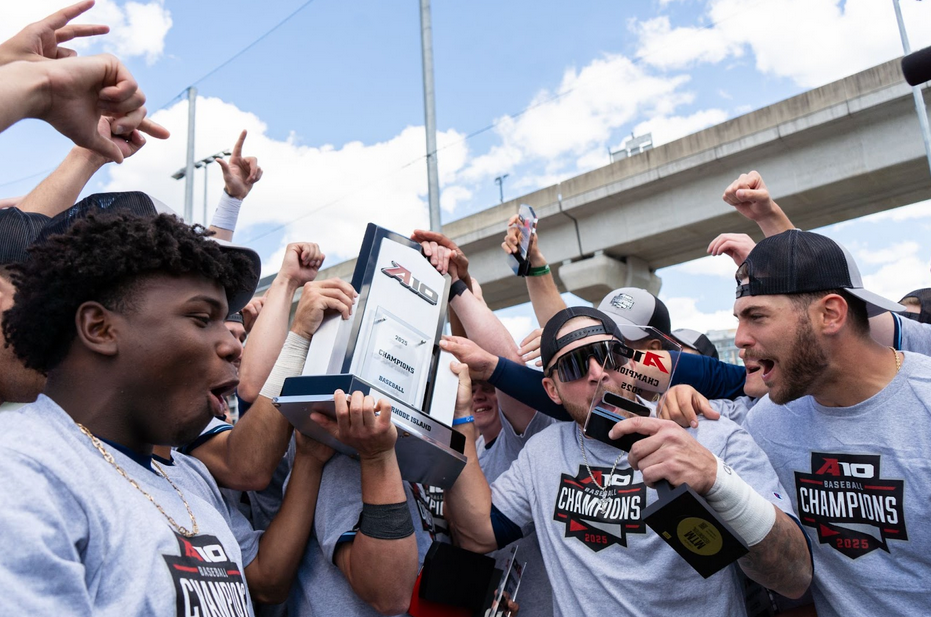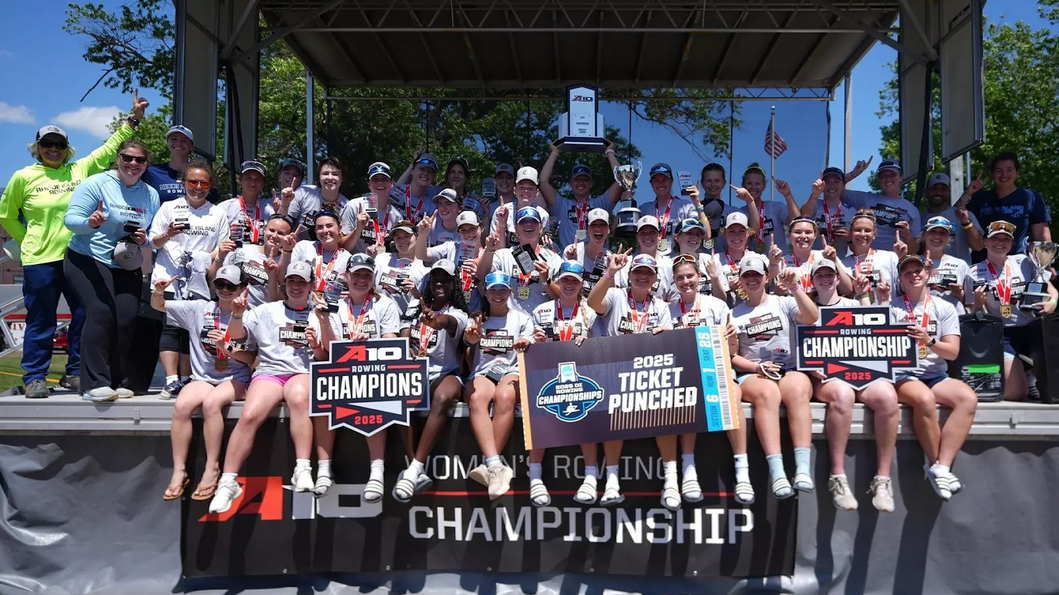There is a difference between a fanbase and a culture.
A big difference.
There is nothing like a college basketball environment. A packed house at a college basketball or football game is second to none. The sounds, sights and just overall atmosphere is uncomparable.
A fanbase comes out to the games and cheers on the home team. Just peachy, right? A culture has one thing that a fanbase doesn’t: consistency.
You can see a fanbase at any game. More than likely, especially at the NCAA Division I level, some type of fanbase will be at each an every game whether the home team wins or loses. Donors, season ticket holders, a handful of students and others make up a generic fanbase.
Culture is a fanbase on a consistent level. No matter what, not only are fans coming through the doors, but they are creating that exhilarating college sports atmosphere. A culture shows up whenever and whoever their team is facing.
At the University of Rhode Island the fanbase is far from a culture. For now. When good teams or in-state and in-conference rivals come to Kingston, all of a sudden there’s a culture. For a game or two it seems like there are more Rhody fans than usual. It seems like students suddenly realize that they get into home games for free. The Ruckus is rocking, people are on their feet and it all adds up to one of the most electric atmospheres in sports.
This past Saturday at the annual Providence College vs. URI men’s basketball game, 7,959 people packed into the Ryan Center. It was the 12th men’s basketball sellout in the history of the Ryan Center. Yes. You read that write. In the 15-plus years the Ryan Center has been open, URI men’s hoops has sold out just 12 times.
That is the problem with URI sports and men’s basketball which is the school’s busdriver sport. The arena is on campus, the team is good and the tickets are free for students yet URI basketball doesn’t have its own culture.
Dan Hurley came to Kingston six years ago with that culture and consistency in mind. He played at Seton Hall. A school that is a founding member of the Big East, which at one point was the best conference in college basketball. His brother, and former URI associate head coach, Bobby played at Duke. A school that has won five national championships. And his father won 28 state championships as the head coach of St. Anthony High School in New Jersey.
Hurley understands college basketball. He knows much more than the x’s and o’s. He has proved he knows how to recruit. He is continuing to build a program and refuses to stop after one break-through season. “I didn’t come here to win one game on our schedule,” Hurley said after the win against Providence. “I didn’t take the job here so I could come be the coach here and beat Providence. I came here to win championships, get to the NCAA tournament and be a factor in March.” Note championships. As in more than one.
There is no doubt that if and when the Ryan Center is filled with students, alumni, fans and supporters it is one of the hardest places for opposing teams to play in the Atlantic 10. Hurley would certainly agree. “I want to thank our amazing crowd,” Hurley said on Saturday night. “Not a better college venue when our place is packed. Not in Rhode Island. Not in New England.”
VCU, an A-10 counterpart and a school Rhode Island should compare themselves to, is currently on a streak of 103 plus sellouts at their home arena, the Siegel Center. I don’t think it is a coincidence that VCU has made it to 11 of the last 13 NCAA tournaments including seven straight trips. By the way, they made it to the Final Four in 2011. That is culture.
Don’t get me wrong, there are fans that already live for Keaney Blue. There are fans that can tell you where they were when the Rams made the Elite Eight in 1998 or when Lamar Odom won the A-10 on a buzzer beater in 1999. However, for the program to take needed jumps, I believe it starts with more fans, support and revenue.
You have a winner in your backyard at the University of Rhode Island. One NCAA tournament appearance is not enough. One Atlantic 10 Championship is not enough. The proof is in the pudding. Again we come back to what the main difference is between a fanbase and a culture? Well, that is consistency.



